ENVIRONMENT & CLIMATE

Beavers in Alaska Multiply in Number, Transforming the Tundra Into Warmer, Greener Area
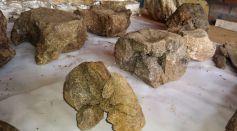
34 Million Years of Ancient Mammal Migration May Help Solve the Long-Lasting Mystery of ‘Lost Continent’

Fishermen Work Together to Release Sharks Attracted To Yellowtail, Trapped In Fishing Nets Near Famous Surfing Site in Cape Town [Watch]

Genomic Data Reveals the Biggest Human Ancestral Tree of 231 Million Lineages
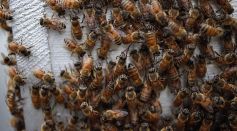
Male Honeybees Experience Extreme Death Due To Heat Stress, Abdomen Bursts After Drones Spontaneously Ejaculate In Their Last Breath

Snake Catcher Bitten By a Venomous Black Mamba After Rescuing It, Dog Suffered The Same After Boomslang Encounter
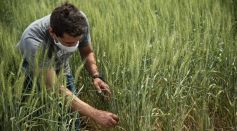
Genetically Modified Crops: Nanocarrier Spray Helps Achieve Better Plants

England Archaeological Site Discovered with Rare, Well-Preserved 'Time Capsule' from Iron Age

Fish Bones Reveal Dinosaur-Killer Chicxulub Hit the Earth During Spring 66 Million Years Ago
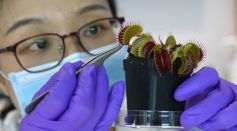
Venus Flytrap Plays Vital Role in Brain-Machine Interface Shown Using Artificial Neurons
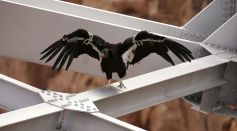
Mammal, Bird and Plant Species Near Extinction: What Do They Have in Common?

ADHD in Children May Be Linked Between Exposure to Air Pollution and Risk of Developing the Condition

Last Known Freshwater Dolphin in Mekong River Laos Caught in a Fishing Net, Badly Injured and Found Dead Days Later

Nearly 8ft-Long Snake Found in Georgia Almost Broke National Record; Reptile Deemed Harmless Despite Enormous Size
Most Popular

Can Humans Achieve Immortality? Latest Scientific Advances in Longevity & Lifespan

What Happens to the Body During Sleep? Brain Repair, REM Cycles, and Nightly Recovery

Ocean Exploration: How Deep Sea Research and Marine Technology Reveal the Ocean Floor Without Going There

James Webb Space Telescope Discovers Closest Galaxy to the Big Bang Ever Observed





